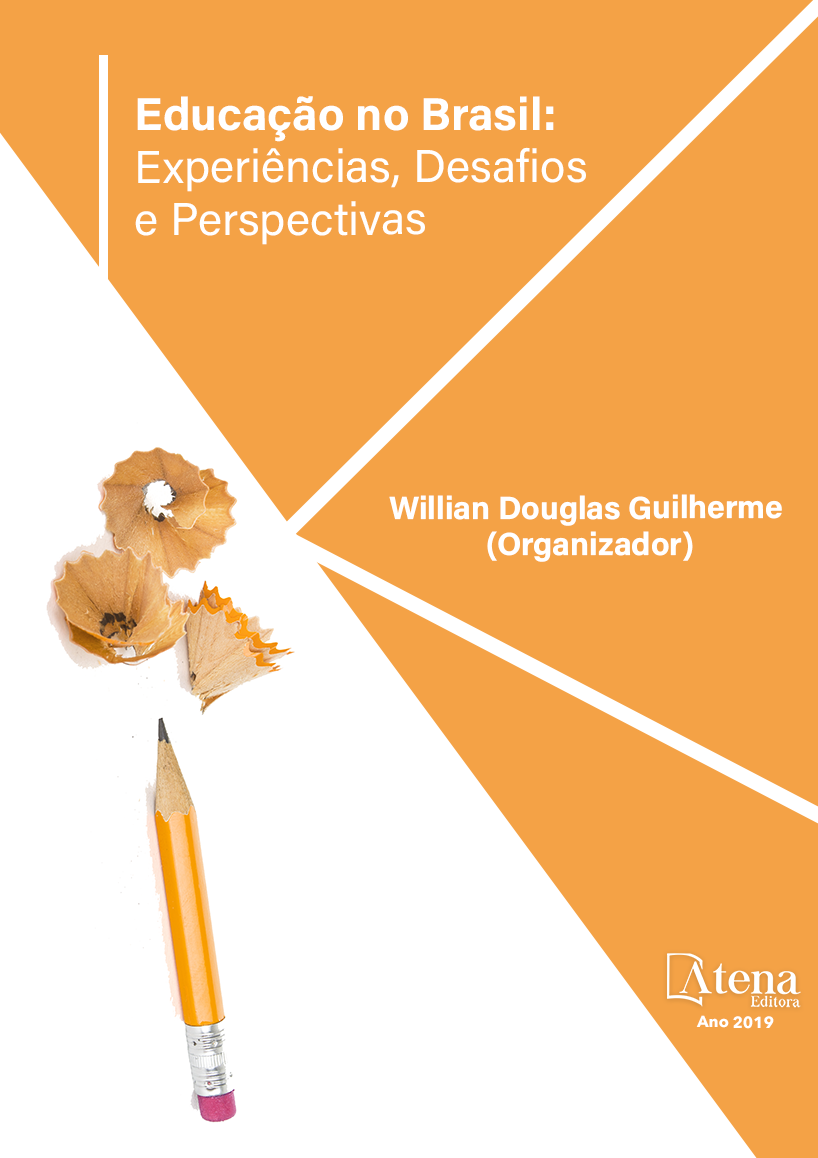
“ESCOLA SEM PARTIDO”: CRISE NA EDUCAÇÃO?
O presente capítulo objetiva
compreender o movimento/programa “Escola
Sem Partido” à luz do pensamento da filósofa
política Hannah Arendt, através de seu ensaio
intitulado Crise na Educação. A composição
metodológica pautou-se pela pesquisa
bibliográfica para se construir uma análise
crítica fundamentada pelos conceitos crise,
autoridade e tradição, permitindo pensar o
cenário da educação brasileira na atualidade,
a partir de um ensino mais humanizado. O
movimento/programa “Escola Sem Partido” tem
como princípio o controle do trabalho docente no
tocante, a luta pela neutralidade e por um partido
único e absoluto. Isso posto, pode-se pensar
que tal movimento/programa estimularia a crise
na educação ou estaria em luta contra a crise
criada pelo pensamento crítico dos professores,
haja vista que o “Escola Sem Partido” prioriza a
neutralidade da educação, subtendendo-se que
objetiva a autoridade e a tradição como forma
de estagnar o pensamento crítico nas escolas.
Contudo, segundo Arendt deve-se enxergar a
crise como um momento privilegiado para o
exercício da atividade crítica. Para a filósofa o
conceito de autoridade está vinculado a uma
das formas da responsabilidade assumida
pelo educador com o outro e com o mundo. E
tradição é a capacidade do professor fazer a
mediação entre o que é velho e o que é novo,
exigindo da docência um respeito singular pelo
passado. Por isso, as reflexões arendtianas
auxiliam a compreender as interpretações que
estão vigorando na atual contextura brasileira,
contra a falsa neutralidade e a favor de uma
educação mais humana.
“ESCOLA SEM PARTIDO”: CRISE NA EDUCAÇÃO?
-
DOI: 10.22533/at.ed.64519270916
-
Palavras-chave: “Escola Sem Partido”; crise; educação; pensamento crítico.
-
Keywords: “School Without a Party”; crisis; education; critical thinking.
-
Abstract:
This paper aims to understand
the movement/program “School Without
Party” in the light of the thinking of the political
philosopher Hannah Arendt based on her essay
entitled Crisis in Education. The methodological
composition was guided by a bibliographical
research in order to build a critical analysis based
on the concepts crisis, authority and tradition,
allowing us to think about the scenario of the
Brazilian education nowadays, from a more
humanized teaching. The movement/program
“School Without Party” has as its principle the
control of teaching work on political and striving
for neutrality and a single and absolute party. It
can be thought that such a movement/program would stimulate the crisis in education
or would be in struggle against the crisis created by the critical thinking of teachers,
given that the “School Without Party” prioritizes the neutrality of education, arguing that
it objectifies authority and tradition as a way of stagnating critical thinking in schools.
However, according to the Arendt, the crisis must be seen as a privileged moment for
the exercise of critical activity. For the philosopher the concept of authority is linked
to one of the forms of responsibility assumed by the educator with the other and with
the world. And tradition is the ability of the teacher to mediate between what is old and
what is new, demanding from teaching a singular respect for the past. The arendtian
reflections help to understand the interpretations that are in force in the current Brazilian
context, against false neutrality and in favor of a more humane education.
-
Número de páginas: 15
- Franciane Sousa Ladeira Aires


